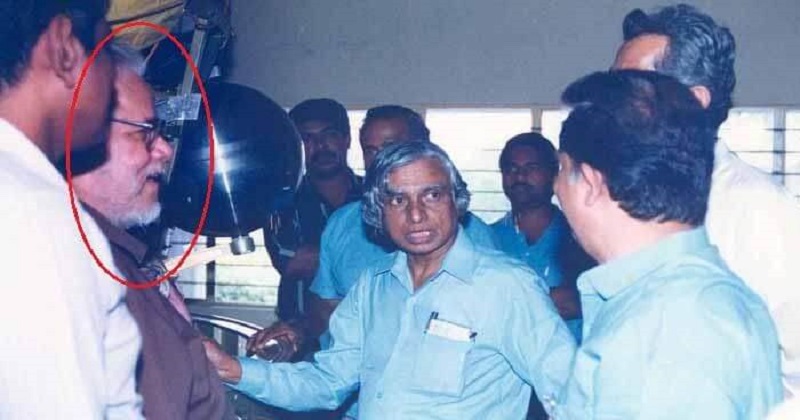
On the sixth anniversary of his death, India remembers its People’s President and veteran scientist Dr. APJ Abdul Kalam. Most Indians know Dr. Kalam as a fisherman’s son-turned-scientist who rose to the top. As the ‘Missile Man’, Kalam served the Indian government’s aerospace and defence establishments. This ‘Missile Man’ Kalam had a narrow escape with an explosion as a newly-established scientist at the Indian Space Research Organization. Padma Bhushan Nambi Narayanan’s autobiography, Ready to Fire, reveals all this and more.
At the beginning of the 1960s, India’s ISRO (then INCOSPAR) was located in a small fishing hamlet called Thumba, in the state capital of Thiruvananthapuram. The scientists working there were mostly young graduates who wanted to experiment and learn as much as possible about a new discipline – rocket science. The only rockets they had were experimental rockets (called sounding rockets) that were fired up to an altitude of 100km or less. Most of these sounding rockets were offered by friendly foreign countries to conduct upper-atmosphere experiments. When compared to the mountains (the PSLV and GSLV series) that ISRO launches today, sounding rockets of that era were molehills.

ISRO scientist Nambi Narayanan was making a gunpowder-based igniter as part of preparations for the launch of one of those French Centaure rockets. In the right altitude, the igniter would trigger a small explosion and release the rocket’s chemical payload into the atmosphere, thus helping to conduct the experiment. However, Narayanan became aware of a scientific principle that prevents their gunpowder from igniting at 100km altitude on the day before the launch.
After Narayanan informed Kalam of the same, he initially refused to accept it. But after Narayanan’s persuasion, the duo went on to test the theory. As part of their experiment, a sealed jar of gunpowder was connected to a vacuum pump (to create thin air and low pressure like in the upper atmosphere). Multiple attempts were made to ignite it, but the 1942 theory formulated by scientists Able and Noble was correct!
Young Kalam poked his nose into the gunpowder-laden jar in order to observe the phenomenon of gunpowder behaving in an inert manner up close. Nambi Narayanan noticed that the vacuum pump was not connected properly to the jar. The countdown had started and the assistant was ready to ignite the gunpowder. As a result, the gunpowder would explode as usual. After a blast rocked the room and glass splinters flew everywhere, Nambi Narayanan leapt across and pushed Kalam to safety. Kalam sat up after the smoke settled and told Nambi, “See, it fired.”. By proving that gunpowder fired at normal pressure, the young duo proved that Able and Noble were right.
The father of Liquid Propulsion Rocket Engine technology in India, Nambi Narayanan, went on to work in various roles with ISRO, DRDO and other government organizations after Abdul Kalam. As part of their research, Narayanan and his team developed the Vikas Engine (which is based on the French Viking engine), a pioneering piece of technology that is still used in the PSLV and GSLV rockets to this day.
Read more: China’s nuke buildup concerns the US after a new report on its silos
The difference between Kalam who advocated solid-propulsion (using solid fuels) and Nambi Narayanan who advocated liquid-propulsion rockets is noteworthy. Nambi believed that India had to focus on liquid propulsion in order to develop heavy-lift capability rockets. As a result, Nambi’s expertise and foresight in liquid propulsion led to India’s PSLV and GSLV rockets, while Kalam’s expertise in solid propulsion gave India its arsenal of missiles.
When Nambi Narayanan was wrongfully jailed and tortured by the Kerala Police and Intelligence Bureau in 1994, he was heading India’s cryogenic engine development program. The ISRO spy case was a fabricated spy case. Earlier this year, the Supreme Court of India cleared Nambi of all charges, and the Indian government awarded him the Padma Bhushan. The Kerala Police (under the then Congress-led government) and Intelligence Bureau officials are being investigated for a larger conspiracy.

Post Your Comments